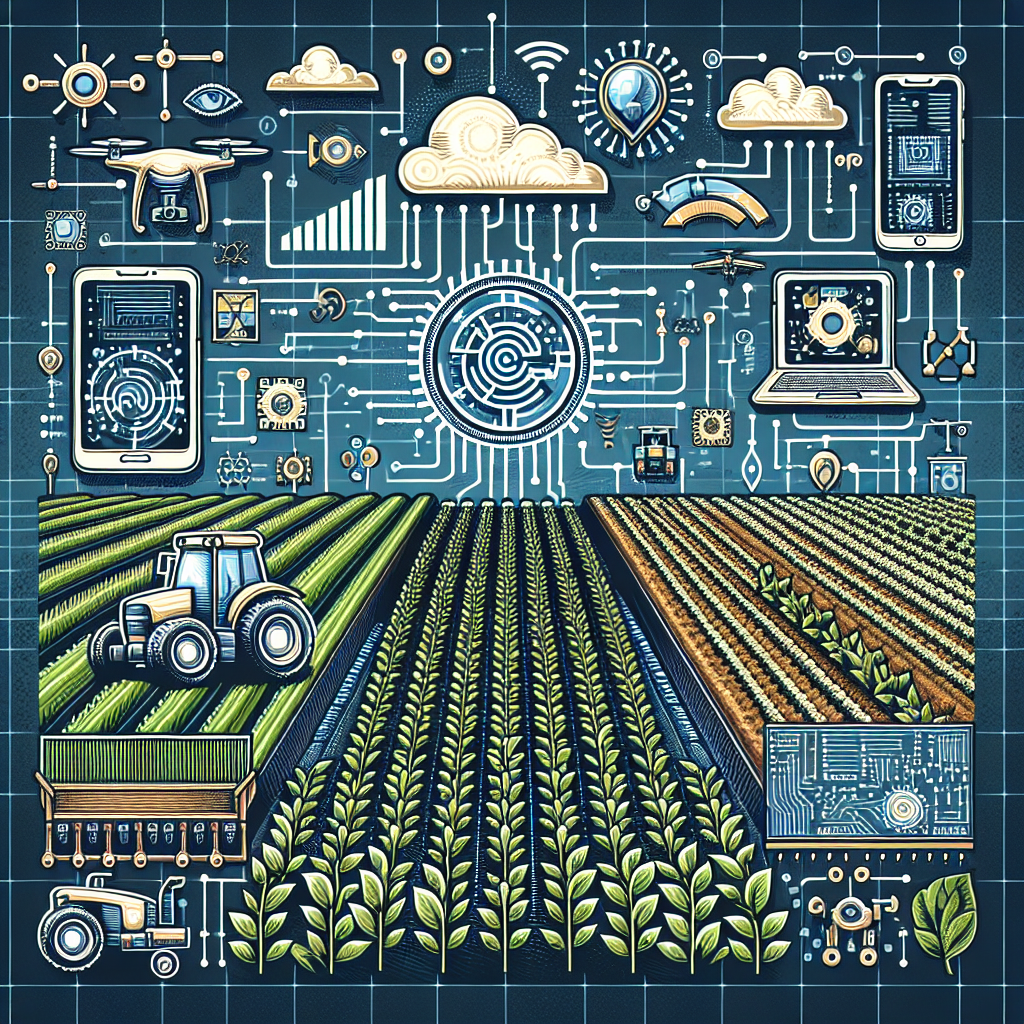Agricultural land use planning is a critical aspect of modern farming practices, as it involves the allocation and management of land resources to optimize crop production and sustainability. With the increasing pressure on agricultural lands due to factors such as population growth, climate change, and urbanization, there is a growing need for efficient and effective land use planning strategies.
One technology that has the potential to revolutionize agricultural land use planning is artificial intelligence (AI). AI refers to the simulation of human intelligence processes by machines, particularly computer systems. AI technologies can analyze large amounts of data, identify patterns, and make predictions or decisions based on this analysis. In the context of agricultural land use planning, AI can be used to optimize land use decisions, improve crop yields, and enhance sustainability practices.
AI Applications for Agricultural Land Use Planning
1. Soil Analysis: AI technologies can analyze soil samples and data to provide insights into soil quality, fertility, and nutrient levels. This information can help farmers make informed decisions about crop selection, fertilization practices, and irrigation management.
2. Crop Monitoring: AI-powered drones and satellite imagery can be used to monitor crop health, growth, and yield potential. By analyzing this data, farmers can identify areas of their land that may require additional attention or intervention.
3. Weather Forecasting: AI algorithms can analyze weather data to provide accurate and timely forecasts for specific locations. This information can help farmers plan their planting and harvesting schedules, as well as make decisions about irrigation and pest management.
4. Precision Agriculture: AI technologies can enable farmers to implement precision agriculture practices, such as variable rate application of inputs (e.g., fertilizers, pesticides), automated irrigation systems, and robotic harvesting. These practices can help optimize resource use, reduce waste, and improve crop yields.
5. Land Use Optimization: AI algorithms can analyze various factors, such as soil quality, climate conditions, crop suitability, and market demand, to optimize land use decisions. By considering these factors, farmers can maximize the productivity and profitability of their land.
6. Disease Detection: AI technologies can analyze images of crops to detect signs of diseases, pests, or nutrient deficiencies. Early detection of these issues can help farmers take timely action to prevent crop losses and reduce the need for chemical treatments.
7. Decision Support Systems: AI-powered decision support systems can provide farmers with real-time recommendations and insights to help them make informed decisions about land use, crop management, and resource allocation.
FAQs
Q: How can AI technologies help farmers improve crop yields?
A: AI technologies can help farmers improve crop yields by providing insights into soil quality, crop health, weather conditions, and pest management. By using this information, farmers can make informed decisions about fertilization, irrigation, and other crop management practices to optimize yields.
Q: Are AI technologies accessible to small-scale farmers?
A: While some AI technologies may require significant investment and technical expertise, there are also more accessible and user-friendly AI tools available for small-scale farmers. These tools can help farmers improve their land use planning, crop management, and productivity without a significant upfront cost.
Q: Can AI technologies replace human expertise in agricultural land use planning?
A: AI technologies are meant to complement human expertise, not replace it. While AI can analyze large amounts of data and provide valuable insights, human knowledge and experience are still essential for making informed decisions about land use planning and farming practices.
Q: How can farmers benefit from using AI technologies in agricultural land use planning?
A: Farmers can benefit from using AI technologies in agricultural land use planning by optimizing land use decisions, improving crop yields, enhancing sustainability practices, and reducing input costs. By leveraging AI tools, farmers can make more informed and data-driven decisions to maximize the productivity and profitability of their land.
In conclusion, AI technologies have the potential to revolutionize agricultural land use planning by providing valuable insights, optimizing resource use, and improving crop yields. By leveraging AI tools, farmers can make more informed decisions about land use, crop management, and sustainability practices to maximize productivity and profitability. As AI continues to evolve and become more accessible, it is essential for farmers to embrace these technologies to stay competitive in the ever-changing agricultural landscape.

